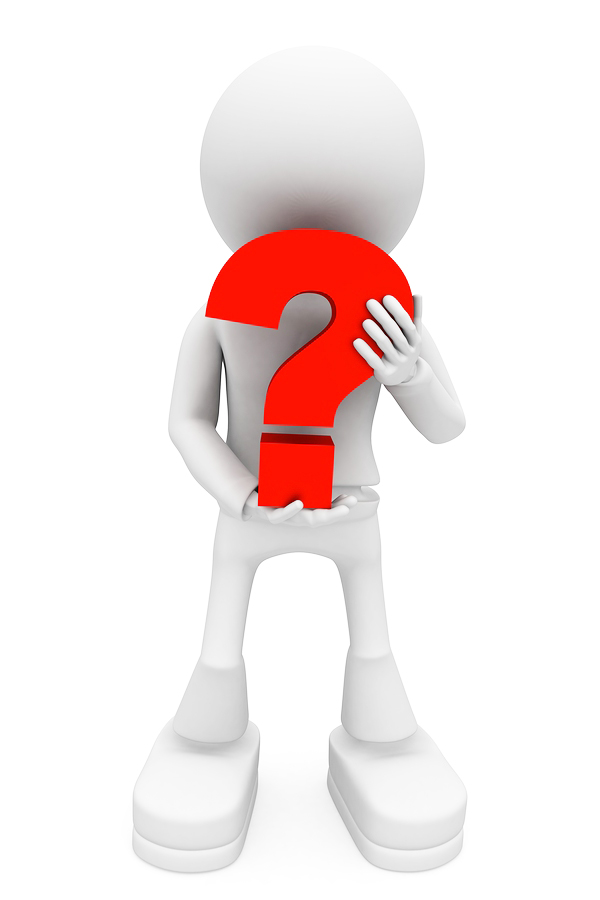Here we find the elusive creature, the website visitor, in its natural habitat. The website visitor has adapted to its harsh environment of sensory overload. Years of browsing websites and clicking on links has conditioned the website visitor to be more predator than prey, choosing content that is relevant and ignoring the predatory practices of ruthless advertisers.
Now that native advertisers must compete for the attention of the website visitor, a person with an attention span of less than 30 seconds, the content-creator must rise above the predator/prey metaphor and create something interesting, compelling and, most importantly, relevant for their audiences.
But even if the perfect piece of content is created, it can be easily lost in the shuffle, never attracting the eye of its intended audience. It is, therefore, incredibly important for the native ad's headline to present why the article is relevant and do so in an engaging and "clickable" way.
Following our practices that we've seen work across MGID's platform of more than 3,000 entertainment and lifestyle publishers.
 1) Focus your ideas. You may have produced a startling work of modern genius, but remember even Shakespeare had to summarize his masterpieces with a title. The best place to start is to distill the core ideas you are trying to express – specifically those that would be of some important value to your audience.
1) Focus your ideas. You may have produced a startling work of modern genius, but remember even Shakespeare had to summarize his masterpieces with a title. The best place to start is to distill the core ideas you are trying to express – specifically those that would be of some important value to your audience.
A good practice is to make your own list of the key points in your article to help you think of more interesting ways to illustrate them. What if you have an otherwise boring topic like "making money online," what are some ways to better communicate that key point?
Your "10 ideas" list could look something like this:
• Luxurious life, top of the world, success, happiness, etc.
• Young millionaires
• Freedom
• Obstacles
• Road to Success
• Tips and Tricks
• Funny
• Small Business Owners
Clear thinking makes clear writing, so make it a rule to write your own list of ideas about an article you are promoting. Especially if your content is very serious or common, a list will help you crystalize how to brighten up the content and make it more interesting and entertaining.
As with any native advertising, it is important that your title is not "click bait" and authentically describes the content in an attractive, but honest and relevant way.
2) Use numbers! By now you've noticed the ubiquitous lists that splatter magazine covers and websites. There's a reason lists are used – because they work. There is no particular rule on how to use numbers in headlines. Effectively it need not be a Letterman-style Top Ten list; it could be 17, 32, 21 – whatever. The only rule is that if you can, use a numbered list.
Numbering content is also a great way to break up longer pieces. Website readers have very short attention spans and so visually breaking up content into a numbered list helps lead the eye from section to section, appealing to readers' natural tendency to scan instead of read.
 3) How can questions help? Try to use questions in headlines. The reader responds well to "how" questions (e.g. How did Donald Trump become so rich? How to Become Successful? How to Lose Weight Fast?),and "why" questions (e.g. Why Doesn't She Love You? Why Do People Sneeze?) or "what" questions (e.g. What Happened to Rihanna's Instagram Account?).
3) How can questions help? Try to use questions in headlines. The reader responds well to "how" questions (e.g. How did Donald Trump become so rich? How to Become Successful? How to Lose Weight Fast?),and "why" questions (e.g. Why Doesn't She Love You? Why Do People Sneeze?) or "what" questions (e.g. What Happened to Rihanna's Instagram Account?).
Beyond questions, your title can also provide answers to problems or questions the reader has, such as "No More Rumors: iPhone 6 Plus In September!".
Or, promise your reader something valuable, entertaining or useful. Be fresh, be seductive but do not deceive visitors. Always stay relevant. Always make sure your content delivers the reader what you promised in the headline.
Examples: Guys Will Never Spot What Is Wrong Here, But Girls...
Piquant KimK Photos Leaked
This Shocking Miley's Performance People Will Never Forget
4) Use power words. Titles should use vibrant, exciting and powerful language. Picking strong or emotional words can make the difference between a headline that draws clicks and one that is lackluster and ignored.
•Effortless or Painless, No Problem etc.
"Kim's Cosmetic Surgery Was Painless and No Problems Occurred."
• Painstaking or Diligent, Exacting, Careful... OR... Conscientious, Scrupulous
"Her drawings were painstaking and so exacting she could sell each one for a lot of money."
• Absolute Complete, Outright, Unlimited, Total
"Tom Cruise has an absolute, unlimited authority when directing all his films now."
• Strange/weird Aberrant, Abnormal, Bizarre, Different, Odd, Anomalous, Deviant
"Miley's aberrant, deviant and tasteless performance was a bit weird, don't you think?"
• Will make you...
"Photos That Will Make You Laugh Hard. One Fact About Penny That Will Make Your Day."
• What happened to?
"Do You Know What Happened To These TV Stars? Watch What Happened To Stallone After The Plastic Surgery!"
 5) Write the way you talk.
5) Write the way you talk.
Don't bust your brain trying to put too many details in your headline. Short and sweet is perfectly capable of winning an audience – think less quantity and more quality.
Examples:
NO: You Already Saw It But One Detail Is Still Left Unnoticed...
YES: This One Detail Fans Left Unnoticed
NO: So Tiny And At The Same Time So Dangerous To Men
YES: Tiny But Terrifying and Dangerous To Men
NO: Most Girls Have No Idea About This Fact About Guys With Body Hair
YES: What Girls Need to Know About Guys' Body Hair
6) Stay positive! Stay positive and make positive headlines that arise strong positive emotions to get the best results! Headlines that provoke positive emotions tend to work better than titles that provoke negative emotions.
Examples: Katy Perry's perfect pitch is nothing short of superb and ideal for pop music.
7) Images! Remember, images are the first thing to attract the attention of the visitors. So, select eye-catching and emotional photos. The image should stand out and grab the attention of the visitor. Amaze, entertain, use humor!
8) You're a genius all the time! @Jack Kerouac. Rely upon your intuition and sense of what works. Also, remember you are a website visitor too. Watch your own behavior and see what attracts your attention and what doesn't.